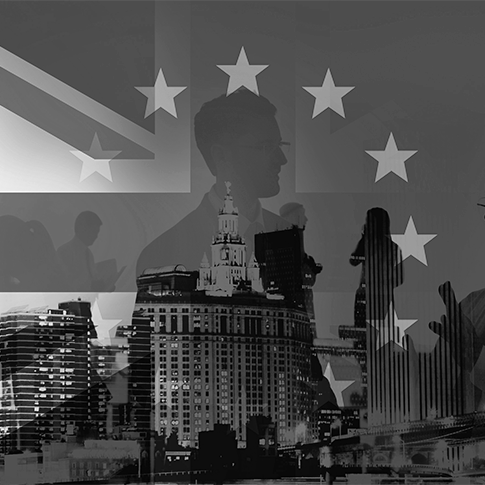Cross-Border Insolvency | The Effects of BREXIT

‘Cross-Border Insolvency’ regulations seek to ensure fair treatment of creditors, maximise the value of assets and manage a company’s debts. They are essential for the management of assets and liabilities which may be spread across several borders and, as far as is possible, avoid legal conflicts.
As nearly every country in the world engages in cross-border international trade, the nature of such trade has undergone significant change over the years. These changes are driven by the need to navigate the inevitable difficulties and implications arising from the implementation of the differing laws and cultures of each participating nation.
With the objective of harmonising and standardising trade practises across borders, the United Nations Commission on International Trade Law (‘UNCITRAL’) has enacted a series of Model Laws, which cover a variety of trading aspects.
One of these is the UNCITRAL Model Law on Cross Border Insolvency 1997 designed to address the challenges arising when a debtor faces financial distress or insolvency and has assets or creditors in multiple jurisdictions.
Stuart Southall of KANGS comments generally on Cross-Border Insolvency.
How the UK Handles Cross-Border Insolvency
The UK's legal framework for dealing with cross-border insolvency combines both international and domestic instruments with the ‘UNCITRAL Model Law on Cross-Border Insolvency’ being adopted by The Cross-Border Insolvency Regulations 2006 (‘the CBIR Regulations’).
The CBIR Regulations make provision for, amongst others:
- recognition of foreign proceedings,
- access to English Courts,
- protection of creditors’ interests,
- coordination between differing legal jurisdictions.
The aim is to provide a framework for cooperation and coordination between different jurisdictions to ensure fair and efficient resolution of cross-border insolvency cases.
The CBIR Regulations adopted ‘the Model Law’ as follows:
‘1.(2) In these Regulations “the UNCITRAL Model Law” means the Model Law on cross-border insolvency as adopted by the United Nations Commission on International Trade Law on 30th May 1997.
UNCITRAL Model Law to have force of law
2.—(1) The UNCITRAL Model Law shall have the force of law in Great Britain in the form set out in Schedule 1 to these Regulations (which contains the UNCITRAL Model Law with certain modifications to adapt it for application in Great Britain).’
Scope of Application
- This Law applies where—
(a) assistance is sought in Great Britain by a foreign court or a foreign representative in connection with a foreign proceeding; or
(b) assistance is sought in a foreign State in connection with a proceeding under British insolvency law; or
(c) a foreign proceeding and a proceeding under British insolvency law in respect of the same debtor are taking place concurrently; or
(d) creditors or other interested persons in a foreign State have an interest in requesting the commencement of, or participating in, a proceeding under British insolvency law.’
The Impact of BREXIT
As the result of Brexit, the previous legal framework provided by the EU Insolvency Regulation no longer applies to proceedings opened after 31st December 2020. This represents a major change in the way that insolvency proceedings involving cross-border assets between the UK and EU are governed.
The automatic recognition to insolvency proceedings across the EU has now been withdrawn. It is now the case that the differing laws of the UK and the applicable domestic law of each EU member state apply. However, the UNCITRAL Model Law has been adopted by Poland, Slovenia, Romania and Greece, and it is hoped that further EU member states will follow.
New EU insolvency proceedings can seek recognition under the CBIR Regulations and the UK’s implementation of the UNCITRAL Model Law. This process requires an application to the courts, which attracts more detailed scrutiny than the EU Insolvency Regulation but enables foreign insolvency officeholders to seek assistance when dealing with assets in the UK.
How Can We Assist You?
Pursuing any insolvency procedure, asset recovery process, or financial dispute resolution outside the UK is inherently complex due to varying legal systems, geographical distances, cultural differences, and accompanying costs.
Brexit has introduced uncertainties and complications that vary depending on the member state involved. KANGS provides support to clients facing the complexities of cross-border insolvency advising upon a wide range of situations, including:
- insolvency proceedings initiated in another country,
- asset recovery from foreign locations,
- dispute resolution in all jurisdictions,
- insolvency proceedings of every nature.
If we can be of assistance, the team at KANGS will be delighted to hear from you. Please do not hesitate to contact us using the details below:
Tel: 0333 370 4333
Email: info@kangssolicitors.co.uk
We provide initial no obligation discussion at our three offices in London, Birmingham, and Manchester. Alternatively, discussions can be held through video conferencing or telephone.
Top ranked by leading legal directories Chambers UK and the Legal 500.







